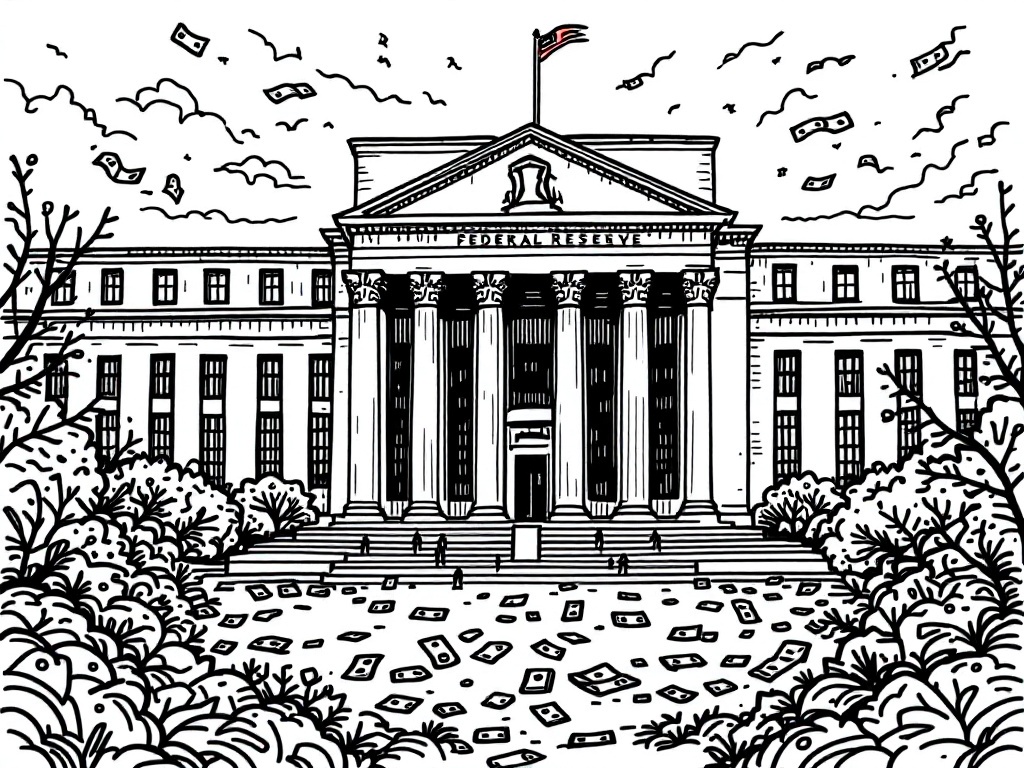Federal Reserve Revises Economic Forecast Amid Global Challenges

Washington, D.C., Thursday, 11 September 2025.
The Federal Reserve’s latest report highlights inflation, labor market dynamics, and trade policy impacts, urging adaptive strategies to navigate ongoing global uncertainties.
Inflation Concerns and the Labor Market
The Federal Reserve’s recent report, released on September 9, 2025, highlights growing concerns about inflation, which currently stands at 3.2% [5]. The labor market also faces pressures, with hiring in the U.S. being slower than initially reported. A preliminary revision by the Labor Department indicated that annual hiring was overstated by 911,000 jobs [1]. These factors contribute to a complex economic landscape where the Fed must balance its dual mandate of ensuring price stability and promoting maximum sustainable employment [6].
Impact of Global Trade Policies
Trade policies continue to play a significant role in shaping the economic outlook. The potential long-term impacts of tariffs and geopolitical tensions are a source of caution for financial leaders. For instance, JPMorgan Chase CEO Jamie Dimon highlighted the delayed effects of such policies, emphasizing their potential to influence the U.S. economy over extended periods [7]. The Supreme Court’s upcoming hearings in November 2025 regarding the legality of tariffs further underline the ongoing uncertainties in international trade [1].
Strategic Adaptations in Economic Policy
Given these challenges, the Federal Reserve underscores the need for adaptive strategies both for businesses and policymakers. The upcoming Federal Reserve meeting scheduled for September 20, 2025, is expected to address these issues, with markets anticipating at least a 25-basis-point interest rate cut [6]. This anticipated move aims to mitigate some of the economic pressures and maintain momentum in growth despite the headwinds [6].
Future Outlook and Policy Implications
The broader economic forecast for 2025 projects a global growth rate of 2.5%, reflecting a cautious optimism amid persistent uncertainties [5]. As the Federal Reserve navigates these turbulent waters, the importance of data-driven policy decisions becomes ever more critical. The Fed’s commitment to being data-dependent reflects its careful approach in responding to evolving economic conditions [6][8].